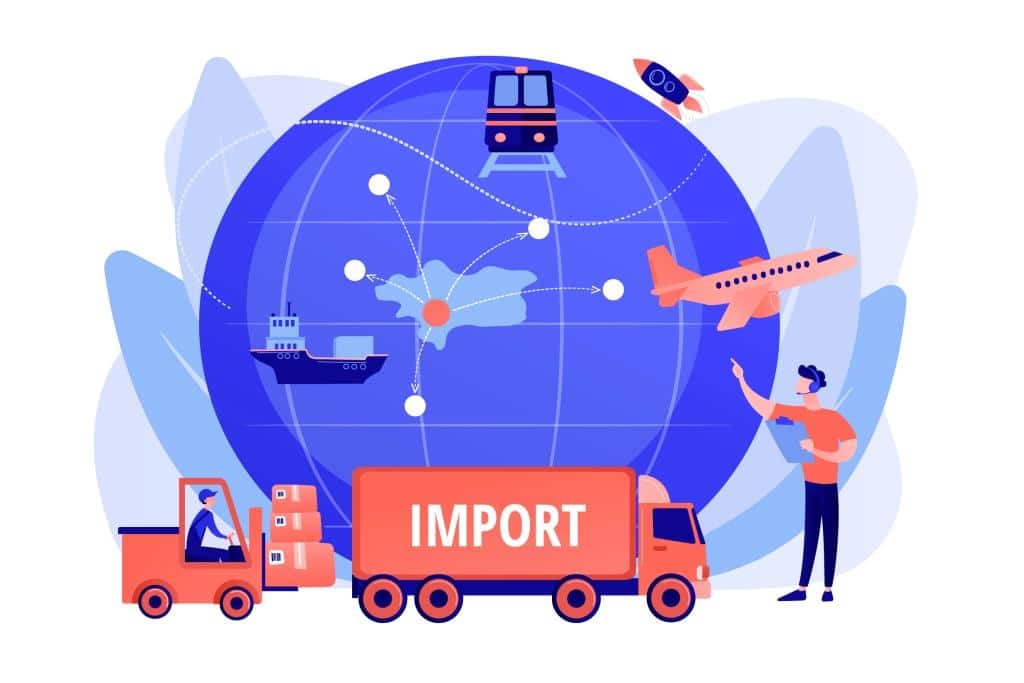There are a lot of steps that you need to take to create a thriving business in these uncertain times. You can start by building strong relationships with Chinese suppliers. Recent data shows that 21% of all imports came from China in 2018.

However, you need to know how to work carefully with your suppliers. You will have to do your due diligence and inspect your shipments carefully.
Inspections Are Crucial for Chinese Importers
We have previously pointed out that entrepreneurs must realize that we live in a global economy. Importing from all across the globe can deliver huge commercial advantages for your company. From benefitting from lower manufacturing costs in certain countries, to getting access to a different range of products, to being able to order in a volume sufficiently large enough to offer economies of scale on the cost per unit, there are many reasons why shipping products from countries such as China make good business sense.
The EPI has made a lot of arguments against this from an economic standpoint. However, importing from China is the sensible way to go if you want to create a strong competitive advantage for your business.
Developing a good relationship with a factory or supplier is incredibly important in ensuring that your business does not suffer in terms of what is delivered and when. Relying on trust is a good idea in theory, however, this can leave you vulnerable to a number of issues so it is important not to take your relationship for granted. And if you’re in the business of import, particularly from faraway destinations such as China, the last thing you want is for your shipment to arrive incorrectly. So, it is imperative that you have pre-shipment inspections thoroughly conducted when shipping from China (and other countries) to ensure your orders will be as expected on arrival.
If you would like some more information on pre-shipment inspections, visit this page. But take a look at this overview as to what a pre-shipment inspection can ensure:
Also Read
The order has been properly fulfilled
If you order and pay for a certain quantity of goods, then it is quite obvious that you would not only expect, but would need that amount to require in order to fulfil your own commitments. One of the key areas a pre-shipment inspection would cover would be to stock take the items loaded into the containers to make sure the full amount was being met. It might be the case that if you received fewer than ordered, these would still be sent afterwards but given the length of time shipments can take plus import costs etc, this might cause issues, especially if you have deadlines to meet yourself.
The are no potential issues
The quality of the products you purchase might be compromised by organisations with lesser integrity so it is useful to have a third party verifying that they match the standards that you expect them to. This can be as rudimentary as the product being the right one but can also cover areas such as colours, logos, branding, artwork, dimensions, weight and packaging. In some cases, it might be worthwhile to include a product test as part of the inspection to verify that it will perform as desired and expected.
Your company’s standards are being upheld
Standards vary across the globe so it is necessary to make sure that your company’s, and indeed, the country’s in which you will trade your product, necessary standards are met. This might be something as straightforward as all products including full instructions but could be more serious such as health and safety factors. The integrity of your business should not be compromised by the delivery of substandard items that were purchased in good faith.
Dispute avoidance
It will be much harder to rectify an incorrect, damaged or below-par quality shipment if there was no inspection done before it sets sail. It could end up being your word against the suppliers and this might be difficult to resolve halfway across the world. Not only could this mean lost money, but lost orders, delays in processing and so on which can in turn have a knock-on effect with consumer confidence in your company. No one wants to get into a dispute as these can be difficult to settle so having a pre-shipment inspection is one way to avoid the issue in the first place. One key way the inspection could help this, is if photos are taken at every stage of the checking process that can be clearly identified by the receiving company. That way, the evidence is clear for all parties involved.
Even in the presence of pre-shipment inspections, it is important that you check and verify what has arrived immediately by conducting your own audit. That way, any discrepancies can be raised straightaway which should make them easier to resolve with the supplier. Always ask to see any relevant CCTV footage, photos and packing checklists and processes they will have followed to understand where the error might have crept in. That way, it will be easier to avoid in the future. A good relationship with a trusted supplier is one way to avoid shipment problems but it would be unwise to rely on this entirely as it could leave you vulnerable to issues in the future.
Check Shipments to Sustain Your Business Model
We have talked about the tremendous benefits of having a global business. You need to rely on imports from reliable providers in countries like China. However, you need to check your shipments carefully for quality assurance. The fate of your business depends on this.
